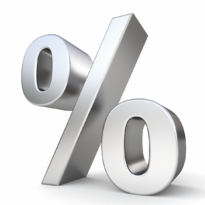UK inflation (CPIH) hit 2.4% in the 12 months to June, breaching the Bank of England’s inflation target for the second consecutive month, as the UK government continued to ease lockdown restrictions.
The Office for National Statistics said rising prices for food, second-hand cars, clothing and footwear had fuelled inflation figures, resulting in its highest rate of growth since August 2018.
The largest upward contribution came from transport, while games, toys and hobbies all saw prices fall this year compared to last year.
Laith Khalaf, financial analyst at AJ Bell, said the UK is currently in “inflationary limbo”.
Khalaf explained: “UK inflation is still only around half the rate in the US, nonetheless the direction and speed of travel is worrying when you consider that only a few months ago UK inflation sat at a lowly 0.4%.
“There is some balm for inflationary concerns in the sources of upward price pressure, which came from hitherto mothballed areas of consumer spending such as transport, clothing and hospitality. This supports the hypothesis that rising inflation is largely a function of comparing today’s open economy with last year’s closed shop.
“Looking forward it’s going to be a while until CPI data will reveal if long term inflation is under control or not. In the meantime, the upcoming first half results from UK banks should give some indication of how concerned we should be about inflation.”
According to Khalaf, if loan growth is rising sharply, it will likely find its way into price rises. In contrast if loan growth remains subdued, it suggests economic activity is well anchored.
Richard Carter, head of fixed interest research at Quilter Cheviot, said inflation figures suggest a temporary trend, but warned that the Bank of England will need to be careful around wage growth.
Carter said: “The price increases are being driven by the sectors that struggled since the start of the pandemic. Most of these sectors registered negative price growth for many months in 2020 so it is only natural that prices rise as demand returns.
“The Bank will expect this bout of price increases to be transitory and one that will likely resolve itself over the next six months as the economy reopens. The danger to the transitory narrative comes from the potential impact of this short-run inflation on wage growth.
“If higher prices seep into the labour market on a sustained basis due to labour shortage, we could see sustained inflationary pressures. Likewise, if inflation expectations become ingrained among consumers and producers this could spell trouble. It is this situation that the Bank of England will be compelled to act swiftly to remove the inflationary pressures.”
Higher inflation has also stoked debate around whether the Bank of England will look to raise interest rates. So far, the Monetary Policy Committee has taken the view that the rise will be transitory as a result of the unlocking of the UK economy and will likely peak at 3% before falling back.
Ben Laidler, global markets strategist at eToro, commented:
“Continued upside surprises to inflation will pressure the Bank of England’s ‘transitory’ view on inflation and potentially accelerate its gradual move towards tighter monetary policy, with reductions of bond purchases already begun.
“This could increase equity market volatility from current low levels, after the strong first half performance.”
Derrick Dunne, CEO of YOU Asset Management, added: “With the 19 July now formally confirmed for our full ‘unlocking,’ we can expect demand to continue to surge in the weeks and months to come.
“Indeed, the question still for UK economists is just how high inflation will rise, with some predicting a peak this year of up to 4%, beating even the official forecast of 3%. This would unavoidably result in a sharper and/or faster rise in rates than first expected, and investors should look to protect their plans against this possibility whilst also embracing the economic recovery.
“Today’s data leaves us in no doubt at all that for UK consumers and the Bank of England, inflation will remain a force to be reckoned with.”


































